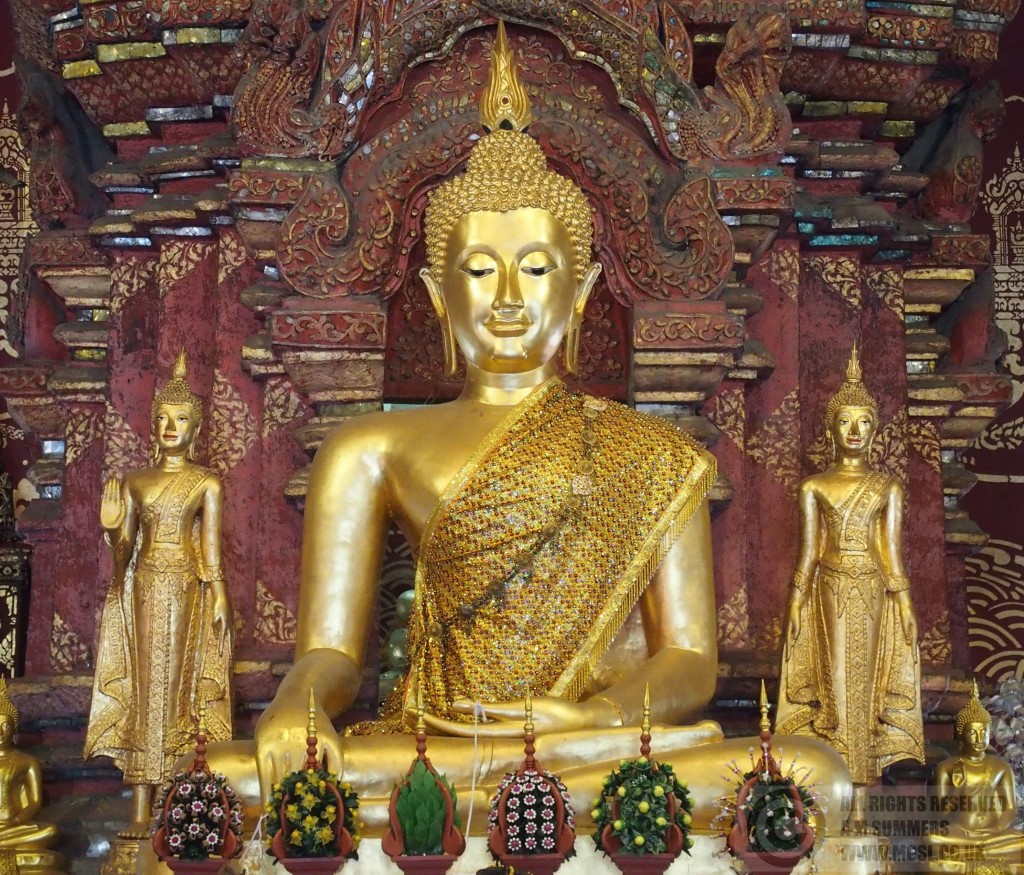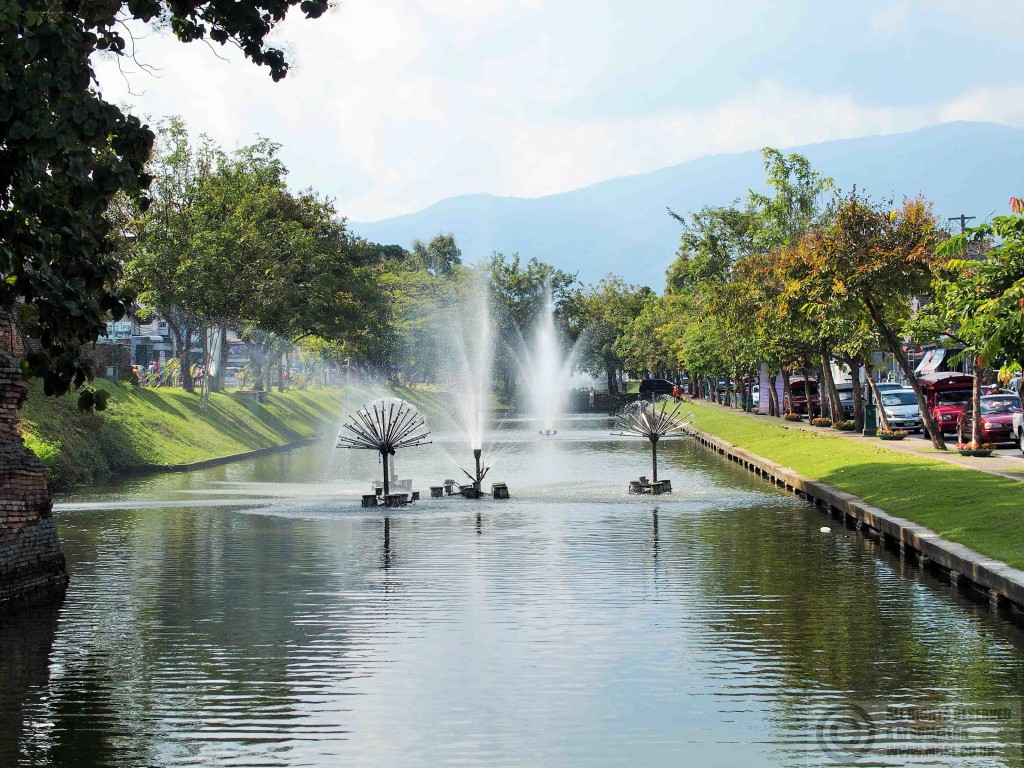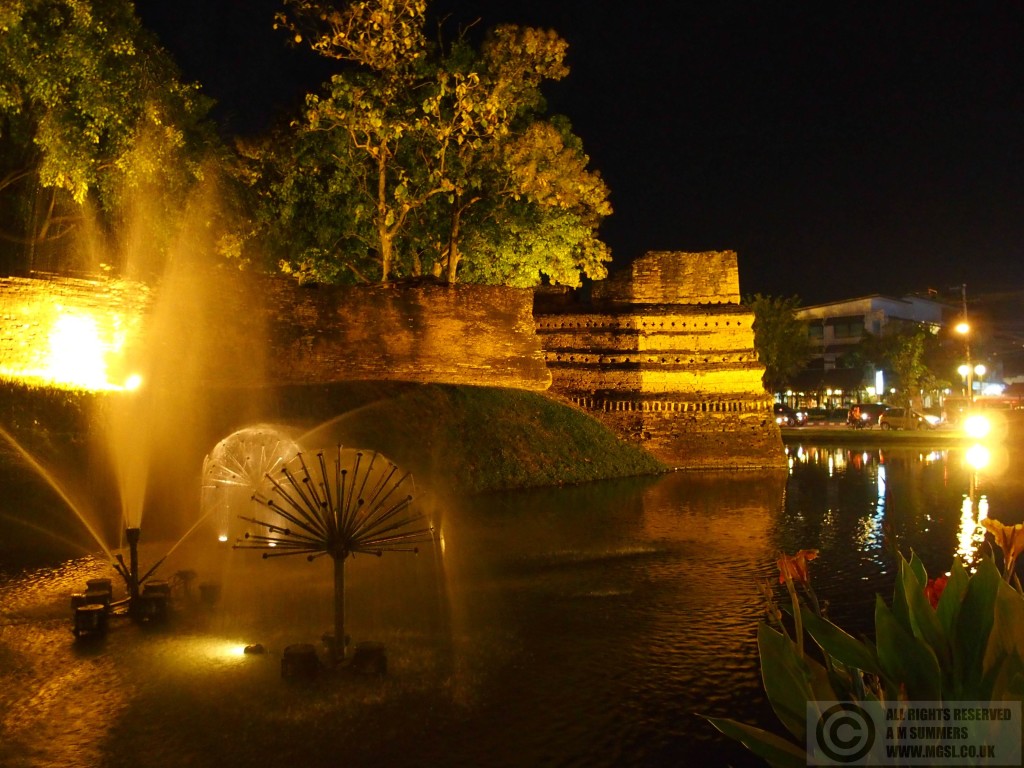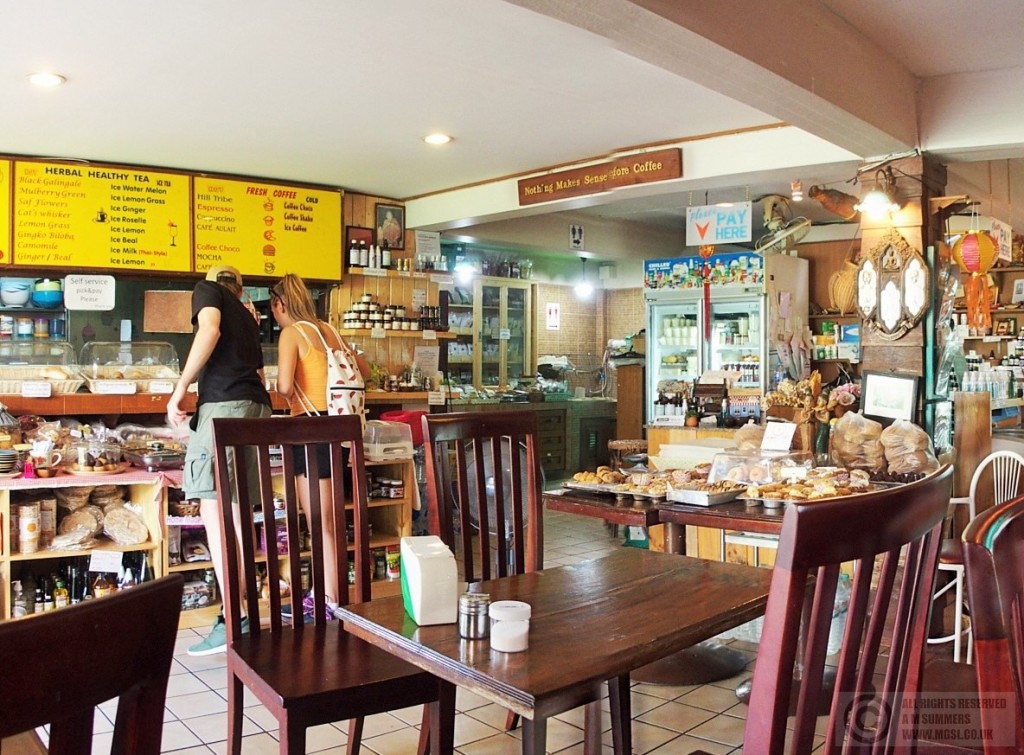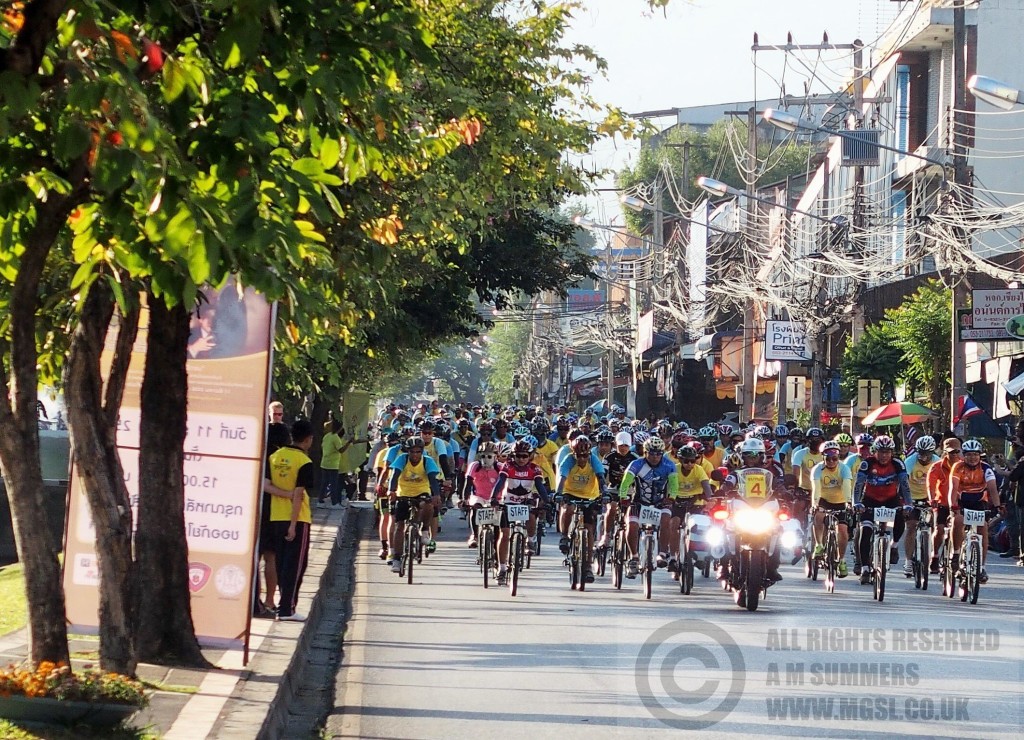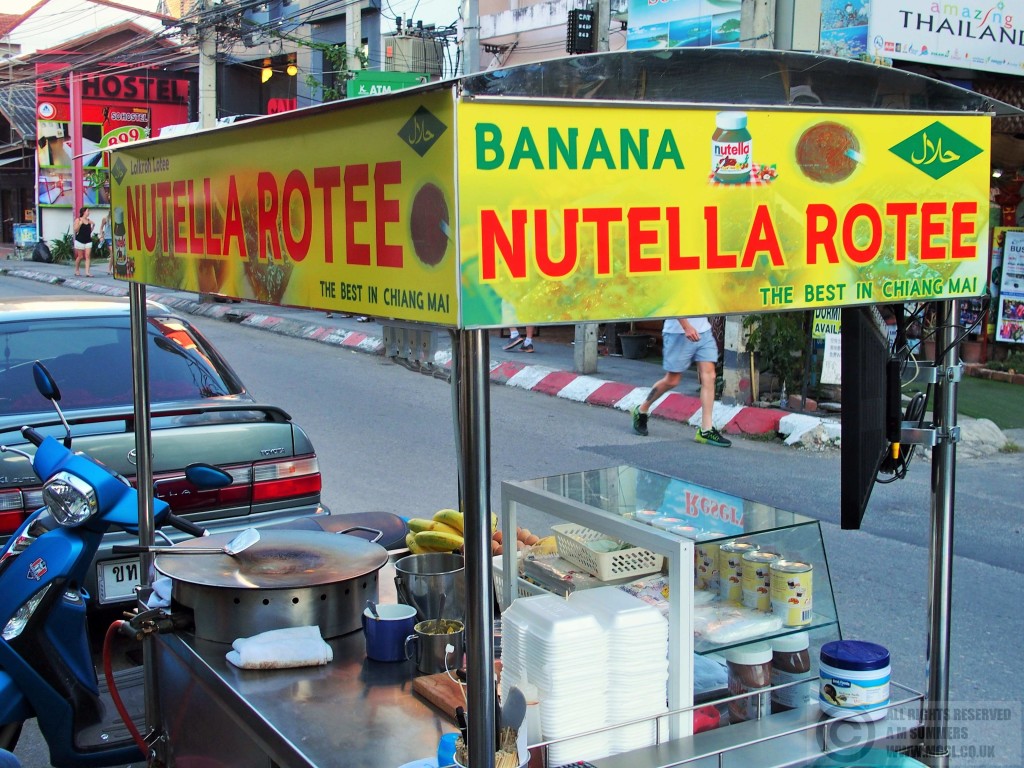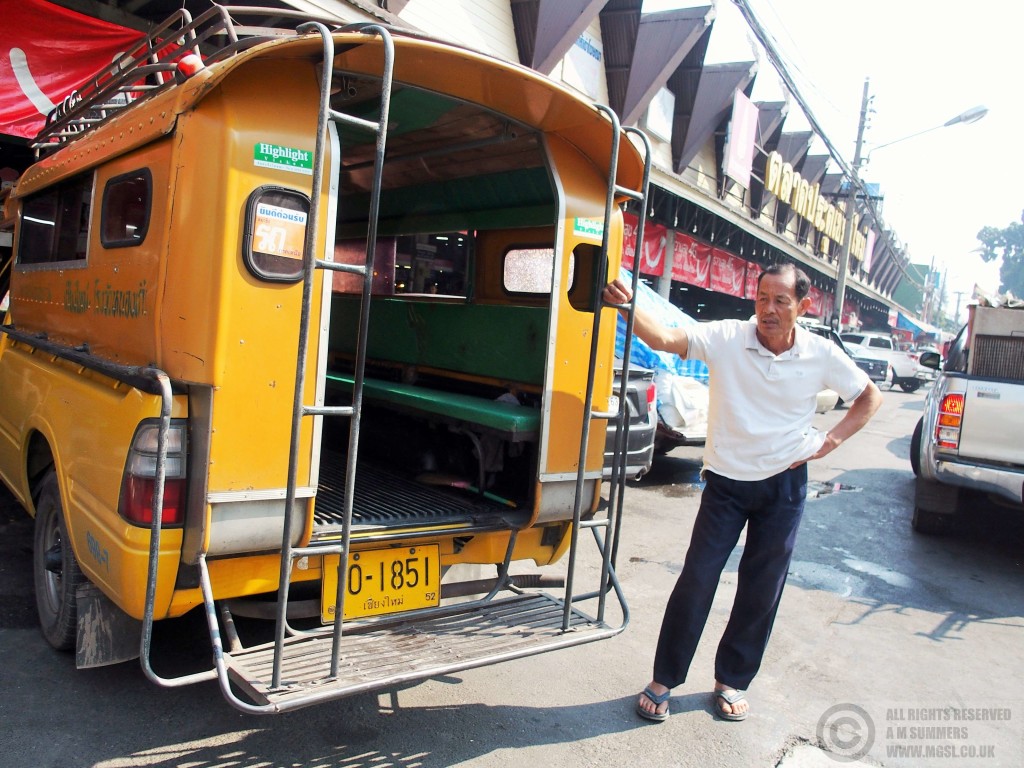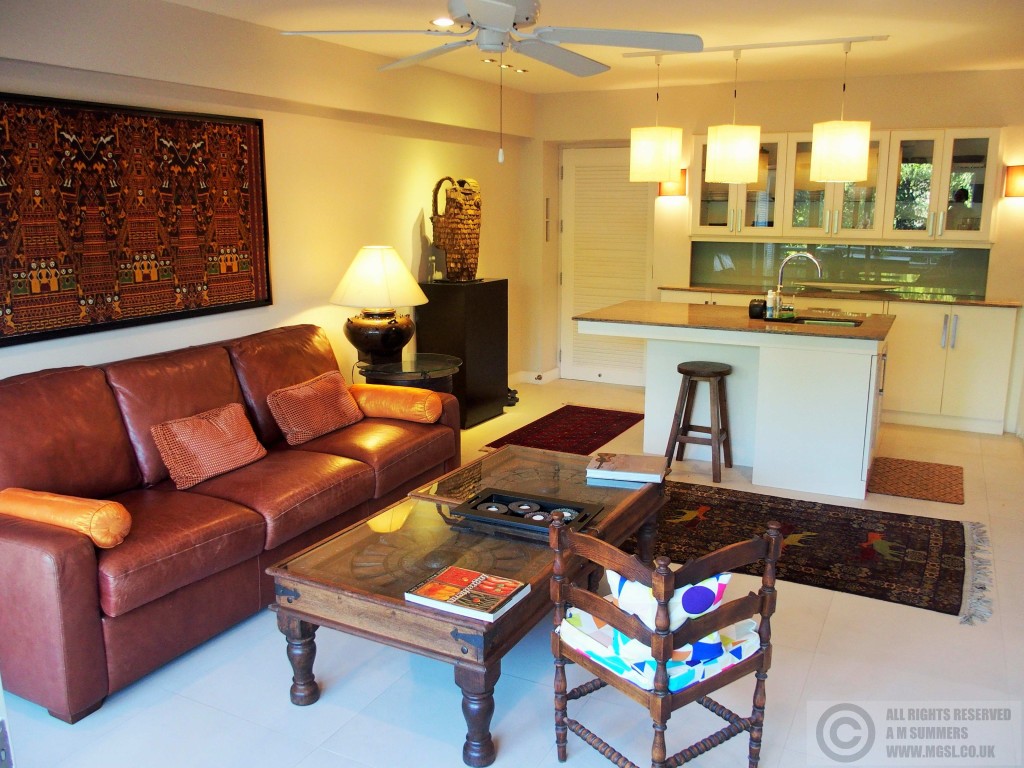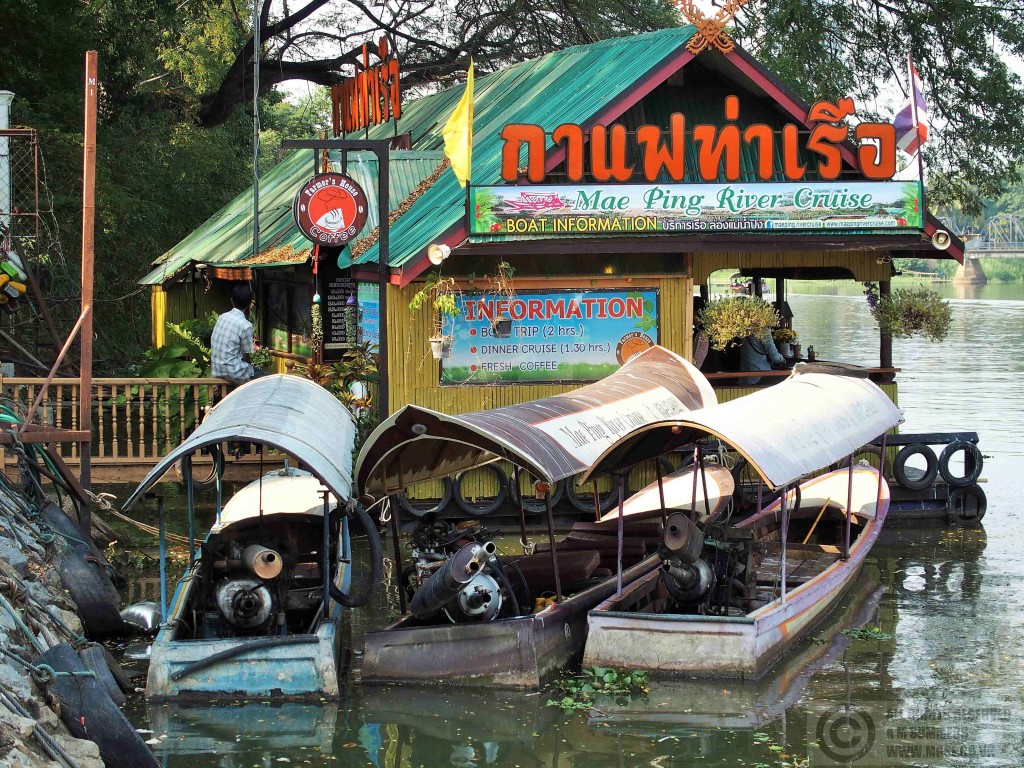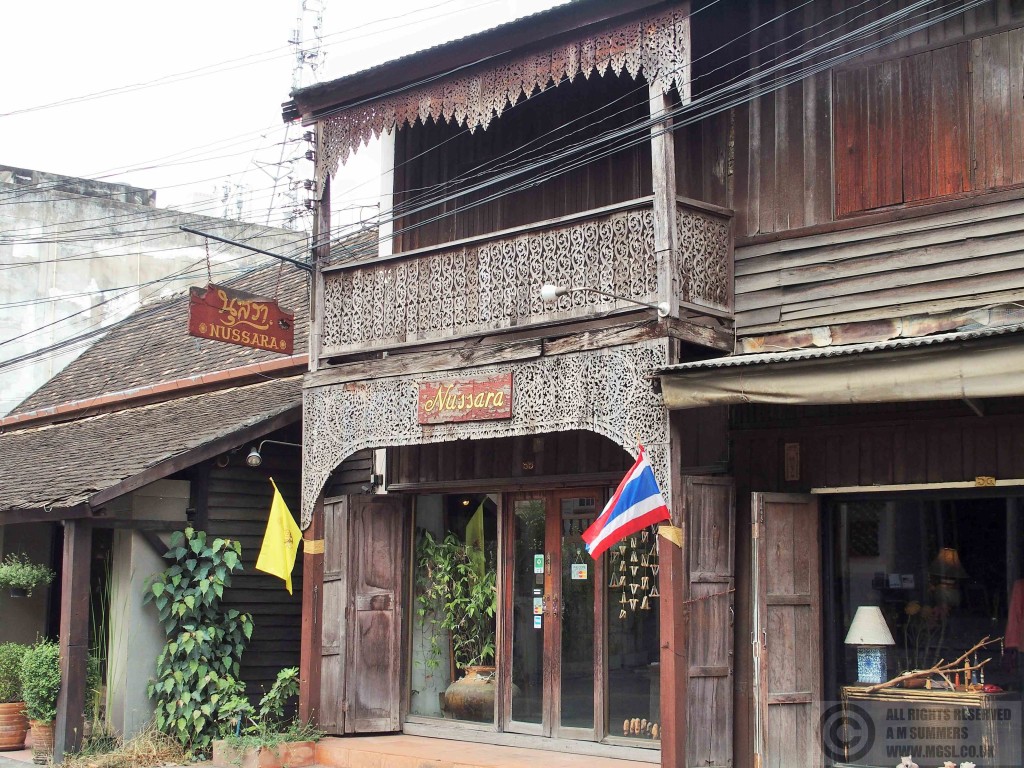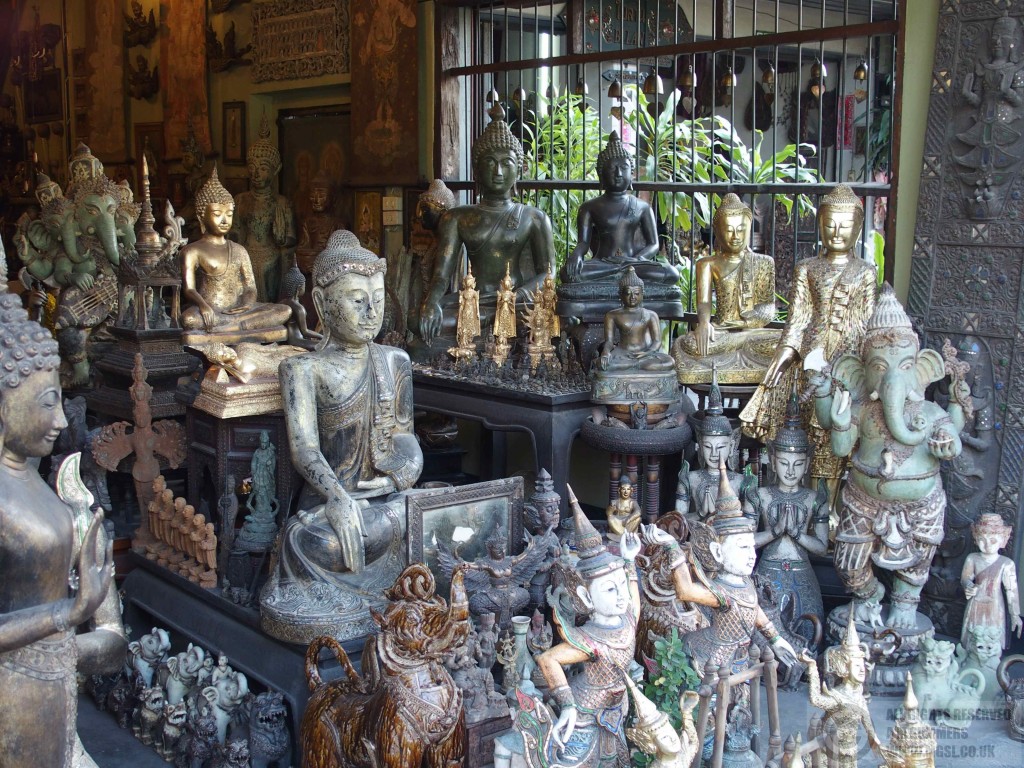Once again Air Asia proved the cheapest way to get from A to B, in this case Kuala Lumpur to Chiang Mai, in half the time and at half the price of its competitors who all routed via Bangkok.
Although we’d never visited Chiang Mai before the reports were all good (and surely 30-50,000 expats couldn’t be wrong) and we planned to stay for 3 months (the maximum possible on a tourist visa), rent an apartment, and not actually travel – partly to save money, partly just laziness.
Chiang Mai might mean “New City”, but even from a map you can see that it’s actually very old, with a square moat that surrounding the centre. This moat, and the ancient, crumbling red brick walls that run alongside much of its length, have shaped the development modern Chiang Mai. Within the walls lie the most important ancient temples, museums, and a network of mostly narrow roads. Other buildings are mostly fairly modern but low rise (strict height restrictions apply), with numerous guesthouses, restaurants and coffee shops. It’s a pleasant and relaxed place to wander on a cool morning. Most traffic avoids the old city, sticking to the busy clockwise ring road outside the moat.
To the east, squeezed between the old city and the River Ping, lies the main commercial centre. There are a few high rise, high end hotels, but mostly it’s still a low key kind of place where you’re more likely to find a family-run basketware shop than an upmarket department store.
We’d booked a room at the 24 Guesthouse, a small place just outside the north east corner of the old city, giving ourselves a week to find somewhere to rent. I’d emailed several agents and had replies from some, but first we needed to decide where we wanted to be. The old city wasn’t really an option, since there are few apartments there, and getting to a supermarket on foot or by public transport would be a pain. Most apartments seemed to be out to the east across the river and beyond the railway station (close to a new shopping mall but a long way from anything else), or west of the old city around Nimmanhaemin Road and another new mall. The Nimman area seemed to be the most popular for expats, so on our first day we went to check it out.
We walked the mile-long northern edge of the moat first, so that we could call into the DTAC store to buy a SIM card, then almost another mile along Huay Keaw Road to the Maya mall. On the way we spotted a popular serviced apartment complex and called in to see what was available. The apartments we looked at had basic kitchens but one was gloomy and depressing, and the “better” one had a bed like concrete. Both seemed very small for the 14-16k baht per month being asked, we’d have to buy bedding, pans, crockery etc, and a large deposit was required which, according to previous guests’ experiences, we might have trouble recovering. We passed.
We were hot and tired by the time we reached Nimman so may not have been in the best frame of mind to judge it, but we were deeply unimpressed. The traffic was awful and it seemed overly-adapted to young western nomads, with an excess of coffee shops and very little that was Thai. The only points in its favour seemed to be the number of apartment buildings and a decent supermarket in Maya mall. If we’d had the energy to explore some of the small lanes off the main road perhaps we’d have got a more favourable impression – but there would still have been the issue of the planes taking off from the airport and passing low overhead, drowning out all possibility of conversation.
Wearily we trudged to one of Chiang Mai’s new ‘bus’ stops. Unusually for a city its size, Chiang Mai has no proper bus service, instead relying on hundreds of songthaews, pick-up trucks converted to carry two rows of seated passengers and as many can hang onto the back. Blue, yellow, green, white and orange songthaews follow more or less fixed routes out to the far suburbs or villages beyond, but if they don’t suit your needs you flag down a red one and hope the driver agrees to take you there – which depends on where his existing passengers are going, and whether he feels like it. Recently a few fixed, numbered routes have been devised and appropriate signs erected. But after waiting 20 minutes our anticipated No 2 sailed straight past our stop in the far lane of the dual carriageway obviously with no intention of stopping, despite the fact that it was empty. As with previous attempts by Chiang Mai’s authorities to set up a bus service, I suspect that the scheme will be sabotaged by the ‘songthaew mafia’. So we flagged down an ordinary red truck which, happily, was going our way.
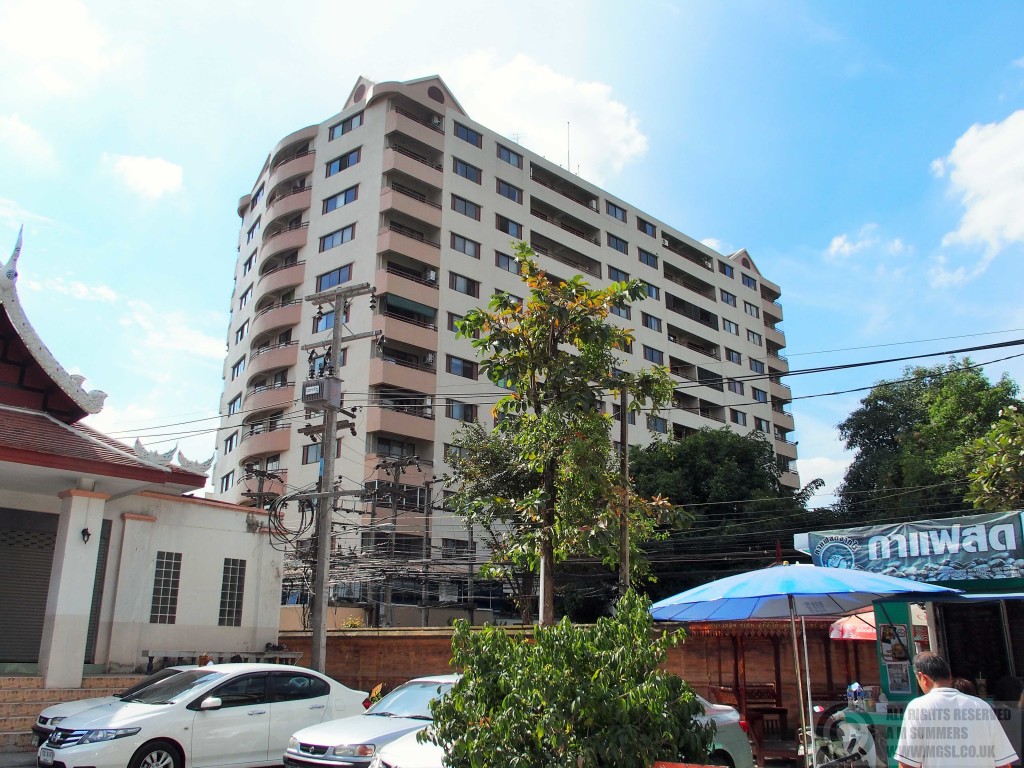
Doi Ping Mansion – not the prettiest edifice from the outside, but you can’t judge Asian buildings by their exteriors
With Nimman out of the running I emailed Perfect Homes who had sent details of a couple of apartments in the area south east of the old town. They were at the top end of our budget, but they looked nice, and there didn’t seem to be many apartments left that fitted our location requirements. The agent, Jade, picked us up at the guesthouse and drove us to Doi Ping Mansion, a condo building in a leafy stretch of road one block back from the river. The first floor apartment was spacious, well equipped, beautifully furnished and cool. We almost said “yes” immediately, but thought we ought to at least look at the other one, at Peaks Garden. This was further from the river (and therefore the supermarket), smaller, more expensive, stiflingly hot without the A/C on, and with the softest mattress I’ve ever encountered.
We could have looked at more places but Doi Ping ticked all the boxes and we didn’t want to risk someone else snapping it up. Admittedly the swimming pool was unattractive, but as Chiang Mai’s cool winter nights make unheated pools too frigid for most people we wouldn’t be using it anyway. And the landlady was an American retiree who seemed very nice – unfortunately Thai landlords have a reputation for unfairly retaining tenants’ deposits when their tenancy ends. Jade dropped us at a bank so that we could withdraw the 10,000 baht holding deposit, which she would collect later from our guesthouse when she brought the papers. Unfortunately the ATM didn’t work, nor did the next couple we tried. I had to phone Jade to delay her arrival, while we checked our bank balance (which was fine) and eventually got our hands on the cash – she probably worried that we couldn’t actually afford the place.
As we would have to rent the apartment for 3 full months we decided to move in a couple of days before out guesthouse booking ended. We expected to have to pay for the whole booking, but the owner generously refunded the unused nights. We just had a few days to assemble the remaining 59k baht we needed – a month’s rent plus two months rent as deposit. I was a bit surprised that the bank didn’t stop our cards for maxing out on withdrawal limits on three days running. I found having all that cash a bit unnerving after our burglary in Bali.
On moving day Jade collected us and all our luggage from the guesthouse, and at Doi Ping we signed the lease and the inventory – it was all reassuringly professional, given that we were handing over a very large sum of money. Our first instincts about our landlady, Pat, were proved correct when she offered to drive us to the supermarket (and back) as she was going there anyway. I was looking forward to three carefree, travel-free months in our lovely new home.


